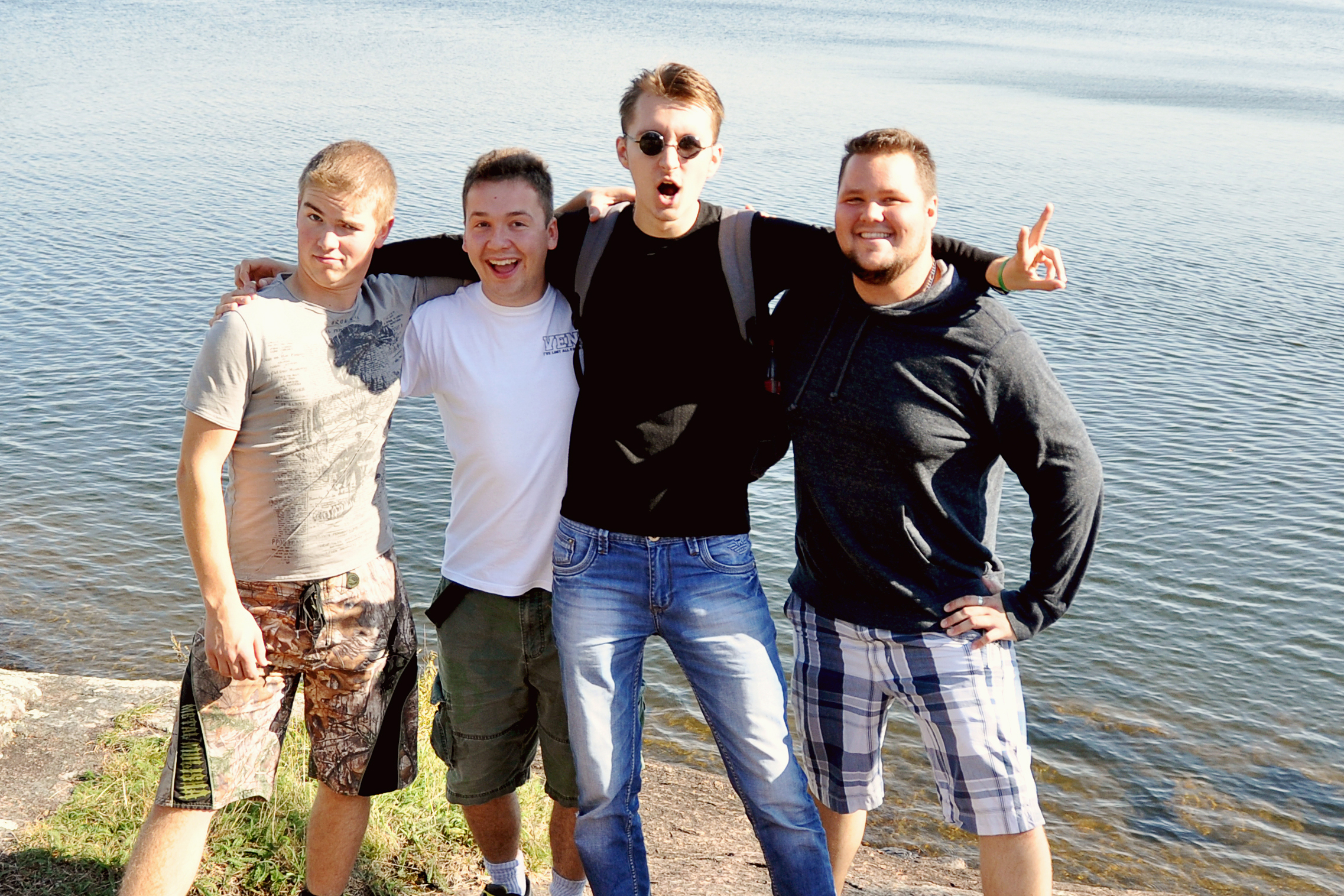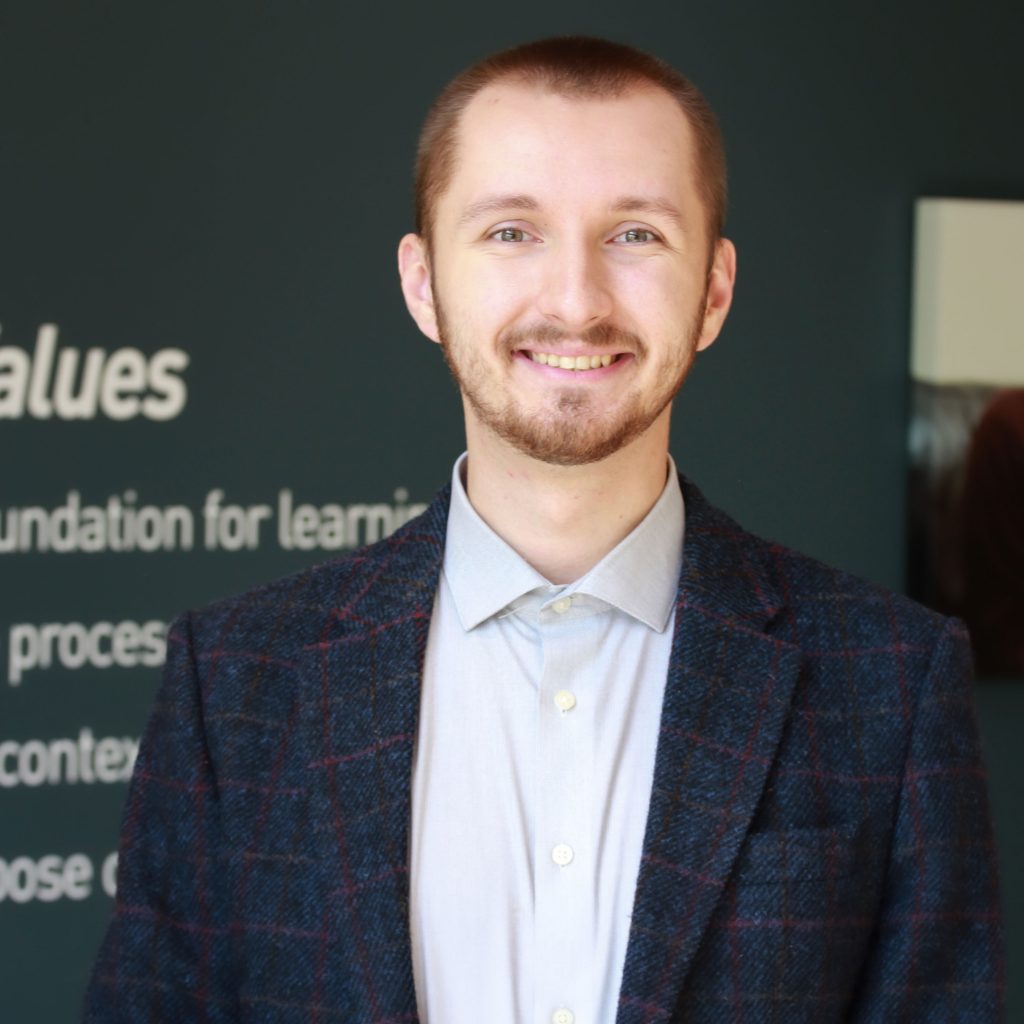
BLOG

From Steinbach To Toronto
He started out at SBC as an international student from Ukraine. A philosophy course at SBC ignited a passion. Now Volodymyr Shevchenko (’18) and wife Caitlyn (’18) are starting a new life in Toronto as he studies at one of the top philosophy PhD programs in the world. Read his incredible story below!
My name is Volodymyr Shevchenko, and I graduated from SBC in 2018 with a BA in Christian Studies.
During my final year at SBC, I decided to take an Introduction to Philosophy course with Dr. Terry Hiebert. This course ignited my passion for philosophy.
This passion led me to go on to the University of Manitoba to complete a BA Honours in Philosophy program, graduating in Spring 2022 with two awards: one for highest standing in the department of Philosophy and the other one for highest standing in the Faculty of Arts, Honours program.
Intending to pursue graduate-level studies in philosophy, I applied and was accepted into the University of Toronto’s MA in Philosophy program for Fall 2022. To my surprise, the University’s graduate admissions committee reached out to me about a week after my initial acceptance in early February 2022 offering admission into their fully-funded PhD in Philosophy program. I accepted the offer, and now my wife Caitlyn and I have been living in Toronto for almost a month, preparing for the upcoming school year and being excited tourists.

With an acceptance rate of about 3% of applicants, The University of Toronto’s PhD in Philosophy is ranked as the eighth best Philosophy graduate program in the English speaking world, according to a 2021 report by the Philosophical Gourmet Report. Their program ranks higher than Harvard, MIT, Stanford, and Cambridge’s programs, to name a few.
Philosophy is a discipline that values careful, rigorous thinking. Doing careful thinking sometimes requires trying to understand what other people are saying. Unfortunately, these people are usually either dead or they live too far away to conveniently drive out to them and chat in person, which means that usually, understanding what they are saying comes down to reading what they have written. But unless you have a developed discipline of careful reading, it is really easy to import into the text assumptions that are not warranted by the text.
For example, consider the principle “courage and cowardice cannot both be present in one person.” Now imagine that this principle is true, and you know someone that lacks courage. What follows? Nothing does.
However, it might initially seem that what follows is that that person is a coward, since he/she lack courage. But this conclusion, if true, is not supported by the principle in view. That principle does not say that either courage or cowardice must be present, because it allows the possibility that both courage and cowardice are absent from some people.
This principle entails only that if courage is present, then cowardice is absent, and vice versa. So if someone went along with this incorrect reading of that principle, this person would reach an unwarranted conclusion about someone’s character, which might further cause real-world implications on the relationship between these two people. And all this trouble is due
to a small mistake in how someone might understand a statement.
As a general rule, if you import these sorts of unwarranted assumptions into the text, then you are likely to fail to understand the what the text says, so you are likely to fail to engage in careful thinking, so you are likely to fail to do philosophy well.
Biblical education at SBC discourages this sort of careless reading, instead encouraging students to be careful and thoughtful readers of the Bible. When you learn to approach the task of reading God’s Word with reverence, you develop an awareness of how much minor textual, grammatical or historical differences might impact the proper way to read the text. This awareness has transferred well into my work in philosophy, helping me be a better reader and a more careful thinker.
I credit SBC education for helping me do well in philosophy.
Originally an international student from Ukraine, I applied to SBC because my parents strongly believed in the value of biblical education. My parents have been involved in Christian camping ministry in Ukraine, and when it came to deciding where I would pursue my biblical education, one of their ministry friends from Manitoba recommended that we apply to SBC. Although I did share their belief in the value of biblical education from the start, I grew to embrace it only more as my education both at SBC and beyond progressed.

I was also very blessed to make good friends while at SBC. SBC’s tuition was much higher compared to any tuition I would pay in Ukraine, so I worked and did fundraising while at school to support my education.
I am thankful for the financial support from my family, friends, and SBC’s bursaries for students involved in full-time ministry during the summer. SBC generously matched my Bible Camp earnings, which helped me afford my education, and eventually graduate.
SBC’s influence on my life wasn’t limited to only academic formation. I strongly believe that the missional attitude of the faculty and staff really create the kind of an environment where students feel safe, encouraged to study God’s Word, and motivated to go beyond the walls of the Bible college to engage the world. I am thankful for my experience, and I look forward to how God continues working in the lives of SBC’s students this school year.

This article was written at the end of August 2022.
Volodymyr Shevchenko (’18) is currently into his 1st year in the PhD in Philosophy Program at the University of Toronto.
This article is part of the Fall/Winter 2022 issue of SBC’s magazine, InTouch. You can read the magazine HERE.

